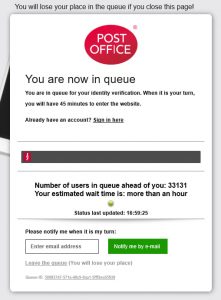UBI is universal when it provides for everyone in a category, without further conditions; basic, when it is only the starting point, and people are free to add income from other sources; income, when it is paid periodically. The Basic Income Earth Network identifies five main points:
1. Periodic—It is paid at regular intervals (for example every month), not as a one-off grant.
2. Cash payment—It is paid in an appropriate medium of exchange, allowing those who receive it to decide what they spend it on. It is not, therefore, paid either in kind (such as food or services) or in vouchers dedicated to a specific use.
3. Individual—It is paid on an individual basis—and not, for instance, to households.
4. Universal—It is paid to all, without means test.
5. Unconditional—It is paid without a requirement to work or to demonstrate willingness-to-work.
There is more to being ‘unconditional’ than not having a work test – benefits that are restricted to people with disabilities or care needs have to impose a test, and to that extent they are selective. UBI tries to avoid the pitfalls of selective benefits, which have three great problems: complexity, the difficulty for claimants of knowing whether or not they will be entitled, and potential stigma. Selective benefits commonly fail to reach many of the people who ought to be receiving them.
Arguments for Basic Income have captured the imagination of many people. I have my reservations about them, and those reservations are serious, but I’m sympathetic to the core objectives: providing people with a foundational income that is consistent, reliable, and as simple as possible.
It seems, however, that some recent programmes have departed somewhat from the script. In Wales, a ‘basic income’ experiment is being conducted for 500 young people leaving care. The programme is linked to advice and support relating to financial management, education, employment and welfare. That’s the right way to go about supporting vulnerable people, but it’s three steps removed from ‘Basic Income’: it’s selective, time-limited and not just a cash payment. In San Francisco, there are three such programmes. The first is the “Abundant Birth Project“, which offers a ‘Basic Income Supplement’ to pregnant women who are African American or Pacific Islanders, mainly for the duration of their pregnancy and shortly afterwards. Next is the Guaranteed Income Pilot for Artists, supporting two cohorts of 60 artists, nominated by partner organisations. The third, and most recent, is the Guaranteed Income for Transgender People, offering both cash support for 55 transgender people and ‘wrap-around’ support (including medical care, case management and financial advice). Again, these initatives are time-limited.
These programmes don’t have much in common with the idea of Basic Income. They’re selective, short-term, and eligibility is highly restrictive; they are linked, beyond cash, to other forms of support; and their target groups are highly visible. I don’t think we can draw any lessons from them about how Basic Income might work, or how people might adapt to a UBI. It’s interesting, however, to see that arguments for UBI have influenced the development of highly targeted, selective benefits – for example, this paper on supporting transgender people. We’re seeing, not a commitment to universality, but a new selectivity.
